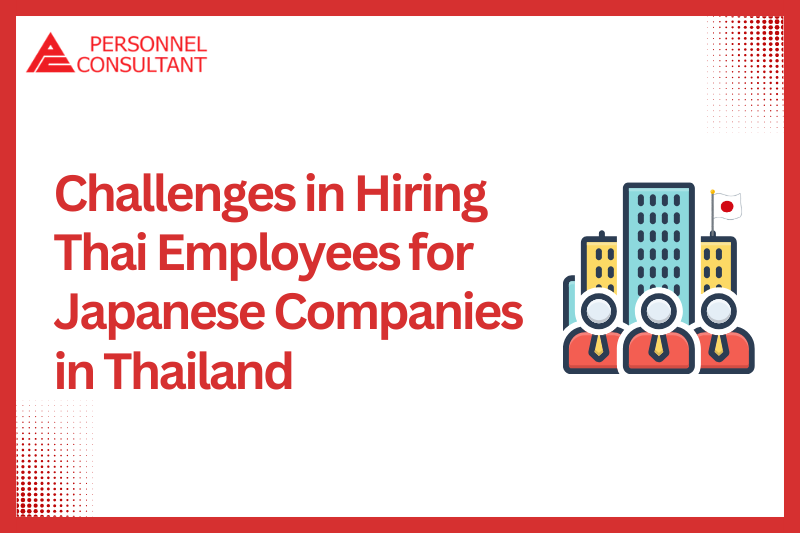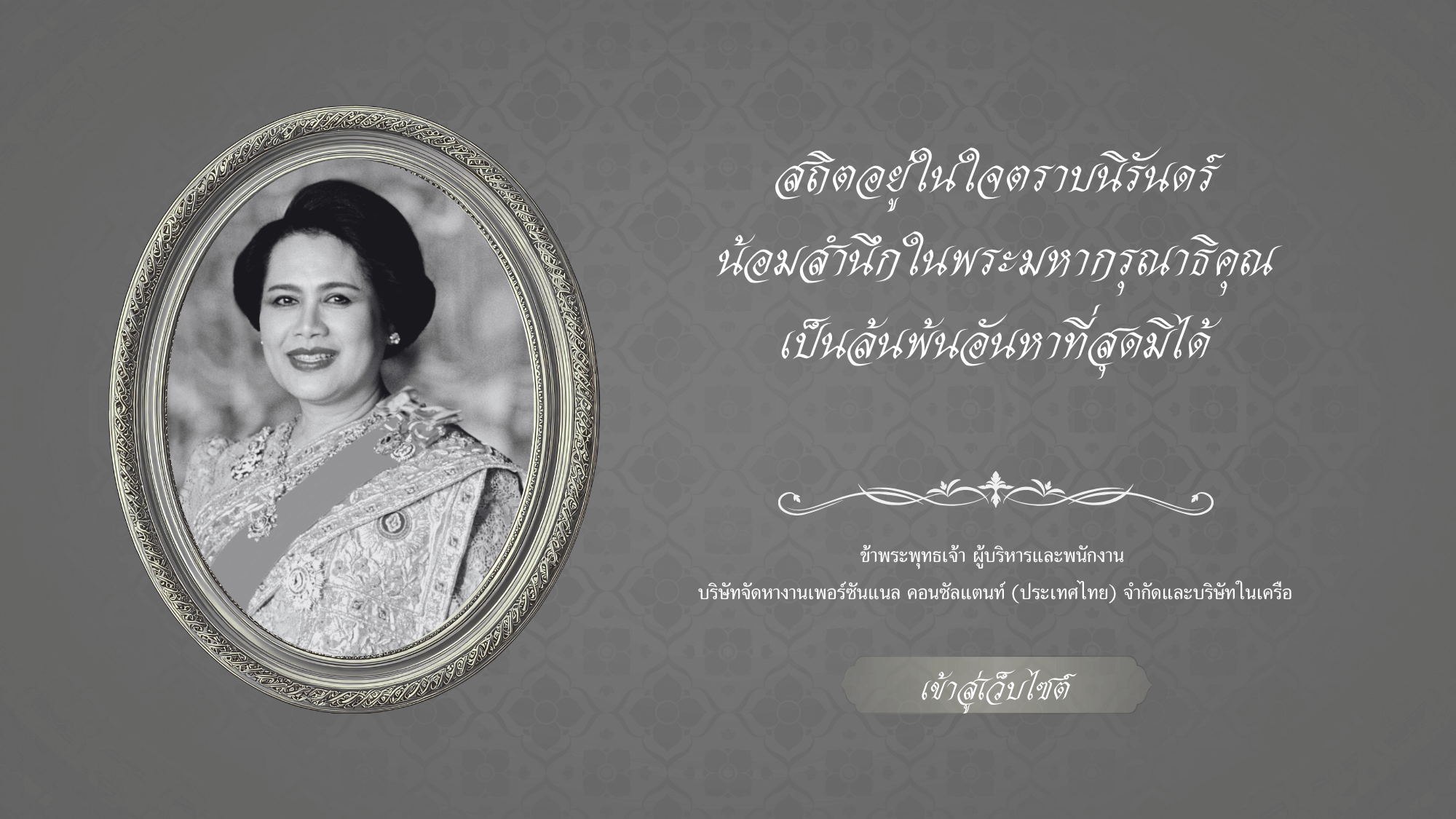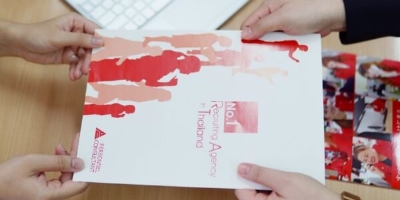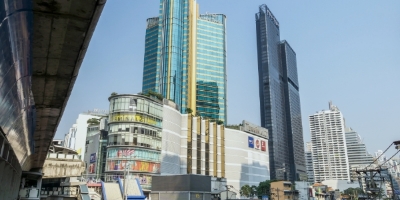
We are Personnel Consultant who has been involved in talent acquisition in Thailand for about 30 years, we strongly feel that in recent years, Thai job seekers tend to decline offers from Japanese companies and accept offers from other companies, such as Thai companies. When we conducted internal statistics, it became evident that the acceptance rate of job offers has decreased in recent years. What could be the reasons for this?
First, we will share the main reasons for offer declines and the measures that Japanese companies in Thailand should take during talent acquisition. Then, we will explain why Thai companies have become more popular than Japanese companies.
Main Reasons for Offer Declines and Countermeasures
Offer declines are a phenomenon that cannot be completely avoided in talent acquisition, regardless of nationality. However, by taking measures, we can reduce the number of mismatches and strategically secure the good talent we want to hire.
Here, we will share common reasons for offer declines based on the offers we have been involved with.
Tied for 3rd Place: Declining due to dissatisfaction with employee benefits
Tied for 3rd place is dissatisfaction with employee benefits. Unlike in Japan, where there is no extensive social security provided by the government, many Thai people expect attractive employee benefits from companies. Specifically, issues such as the amount of bonuses, the presence of provident funds, the availability and coverage of health insurance, etc., are often considered. In cases where these benefits are perceived as unattractive compared to their previous job or other companies they are interviewing with, candidates may decline the offer.
Large multinational companies with a significant number of Japanese employees, such as major manufacturers, are known among Thai people for providing generous employee benefits, such as subsidies for family medical expenses. Even top Thai companies implement such initiatives.
For small to medium-sized companies newly entering Thailand, it may be challenging to provide extensive employee benefits. However, they can consider measures such as increasing base salaries or other allowances. Furthermore, as the business expands, it’s important to strive to update and improve attractive employee benefit plans and communicate this effort to candidates and employees.
Tied for 3rd Place: Declining due to inconvenient commuting
You may think commuting is a minor issue, but it’s a major problem for Thai people. Many Thai people living in Bangkok and its suburbs commute from their family homes located further away, often using buses or motorcycle taxis after getting off at BTS stations. Unlike in Japan, where young employees often move away from their parents’ homes to live independently in places with easy access to their workplaces in their early 20s, in Thailand, many people prefer to live with their families for cost considerations. Therefore, the convenience of commuting significantly affects their cost of living and quality of life.
Additionally, despite the development of BTS and MRT systems, fares are relatively high compared to Thai people’s salary levels. Spending over 3,000 THB per month on transportation alone is not uncommon. If they don’t live along the BTS or MRT lines, they may need to use a taxi, motorcycle taxi, or drive to work, which adds up to their expenses. Moreover, driving often leads to being stuck in traffic, resulting in a long commute time.
First, it’s important to consider this lifestyle of Thai people. During interviews with Thai candidates, it’s crucial to inquire about the convenience of commuting, the time required, and any potential issues related to commuting. When making an offer, it’s essential to understand the financial and time costs of commuting for candidates and set salaries accordingly.
2nd Place: Mismatch in job responsibilities
This is a case where candidates decline the offer because the actual job responsibilities are different from what they expected or because they don’t want to perform certain tasks. Such mismatches can occur regardless of whether the candidates are Thai or Japanese.
Countermeasures include clearly stating job responsibilities in job postings and providing detailed explanations during interviews. Unlike in Japan, where job positions and associated duties are often summarized in contracts, known as job-type employment, in Thailand, it’s necessary to explain job responsibilities thoroughly during the interview process. Explaining the workflow of tasks on a daily or weekly basis can provide candidates with a broad understanding of job duties. Even if an agency is involved, it’s essential to ensure that all job responsibilities are communicated accurately to avoid any misunderstandings and discrepancies.
1st Place: Offer doesn’t meet salary expectations
The primary reason for rejecting a job offer is that the salary offered did not meet the applicant’s desired salary. Many Thai job seekers aim for a 20% increase in annual salary when looking to change jobs. Some specifically target an increase in their base salary. Generally, Thai job seekers prioritize whether they can achieve the desired salary over factors like job satisfaction or fulfillment.
Especially for job seekers in their twenties, without changing jobs, salaries often do not increase much, and their standard of living does not improve. For example, English-speaking graduates may start with a salary of 15,000 to 20,000 THB, and with only a 3-4% annual raise and bonuses, their monthly salary may not reach 30,000 THB even by the age of 30.
As a countermeasure, during interviews, it’s essential to ask candidates about the basis for their salary expectations and determine if there is room for negotiation based on their priorities. It’s also possible to consult with agents beforehand to clarify these aspects. Additionally, if mismatches in salary lead to difficulties in hiring, it may be necessary to reconsider the salary structure, talent requirements, and budget.
Of course, there may be instances where offering this level of salary relative to experience seems too high to candidates. In such cases, it’s advisable to inquire about the basis for their salary expectations, identify their key salary preferences, assess salary levels offered by other companies, delve deeper into their experience, and make a judgment based on confirmation to determine a reasonable salary amount.
Why Thai People Are Becoming Less Inclined to Work for Japanese Companies
After reviewing the reasons for offer declines, you may have gained some insight into why Thai people are increasingly choosing not to work for Japanese companies.
The main reason is closely linked to the top reason for offer declines, which is “Offer doesn’t meet salary expectations.” Indeed, for Thai people, there is a growing perception that Japanese companies offer lower salaries.
1.Salary systems have not kept pace with rising costs of living
Many Japanese companies in Thailand have salary systems that have not kept up with the country’s rising costs of living. Particularly among long-established Japanese companies that have been operating in Thailand for 20-30 years, their salary systems have often remained unchanged since their establishment. Additionally, there are cases where newly entering companies emulate these outdated salary systems.
2.Decline in Japan’s competitiveness
Thai people perceive a decline in Japan’s economic competitiveness. Thai job seekers who decline offers from Japanese companies are increasingly flowing into Thai companies. They feel that even though they work for Japanese companies, the salaries are low, the workload is high, and there is little prospect for growth. As a result, they are gravitating towards Thai companies where they see potential for future growth.
According to the NHK Special “Japan Revival: The Path to Escape from ’30 Years of Cheapness'” (broadcast on April 24, 2023, at 3:00 pm), Japan ranks lower than Thailand in the “World Competitiveness Rankings” announced by a Swiss business school. Moreover, there is data showing that salaries are higher in Thai companies than in Japanese companies, especially for positions below the managerial level.
From these data points, it’s evident that Japanese companies are no longer as attractive an option for Thai people.
In Summary
While Japanese cuisine, products, and travel to Japan remain highly popular among Thai people, there is a diminishing allure associated with working for Japanese companies. It’s essential for Japanese companies in Thailand, including our own, to make improvements to regain their attractiveness as desirable places to work.
We believe it’s important for all Japanese companies in Thailand to be aware of this current situation and take steps to ensure that they are perceived as appealing options for Thai job seekers.
Reference Article: NHK Special
Personnel Consultants , We ‘re Recruitment agency in Bangkok : supports Japanese companies expanding into Thailand through services such as human resource introduction, temporary staffing, language, education, and rental offices.
If you are interested in our services, please feel free to contact us .











